We seem to have come to a collective delusion of grandeur, insisting that all of us are “free” to be as conspicuously greedy and wasteful as the most corrupt of kings and queens. (Perhaps by devoting more and more of our already abused cropland to fuel production we will at last cure ourselves of obesity and become fashionably skeletal, hungry, but–thank God!–still driving.)When I was in college my economics teacher, Clifton Grubbs, talked about what it would be like if gas were $5.00 per gallon. It was actually then about a quarter a gallon, so he was talking about an increase of twenty times the price. Even accounting for inflation, gas is more expensive than it was then. That quarter of a gallon gas would still be under $2.00 now, so the $3.50 or so we are paying at the pump is less than double, but a 75% increase.
Under Grubbs' scenario, gas would cost about $40.00 per gallon now. His idea was that if gas were really to pay for the costs involved in its use, including the clean up afterwards, prices would be this high.
If gas were this expensive, society would rapidly reorder itself. I have trouble imagining it but it seems, as a beginning, downtowns would become prime real estate and people would walk and ride bicycles more. Probably, also, whole other industries would come to a screeching halt: vacations, airlines, trucking. And then the industries that rely on those things would collapse such as hotels and grocery stores.
A friend made a trip to El Salvador last week. He has been traveling back and forth for most of the forty years he has lived in Brownsville and he tells me that with the price of corn and rice so high, conditions are dire. People are starving.
Berry in thinking of our predicament is brought back to Christopher Marlowe's Tragical History of Doctor Faustus: Berry describes the desire of Dr. Faustus, so much like our modern approach to control "all Nature's treasury," to "Ransack the ocean.../ And search all corners of the new found world..."
The warning is that where we have no limits, hell also becomes limitless.
Hell hath no limits, nor is circumscrib'd
In one self place; for where we are is hell,
And where hell is, there must we ever be:
And, to conclude, when all the world dissolves,
And every creature shall be purified,
All places shall be hell that are not heaven.
The distributists also are big on locally grown food on personally owned, mortgage-free land. With the price of grain spiking, it is easy to be held for ransom if you have no control over your own food.
Now my tomato plants have always died and I'm too fat to keep a garden comfortably. Do you suppose sloth and gluttony are kin? How about control of our food and control of our freedom?
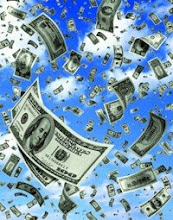
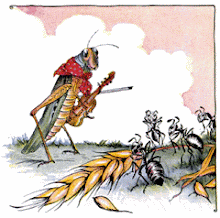








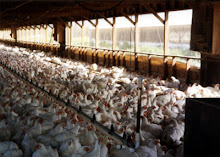




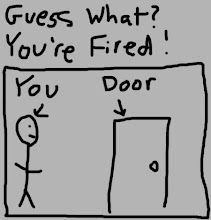










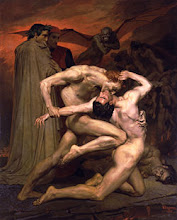_-_Dante_And_Virgil_In_Hell_(1850).jpg)



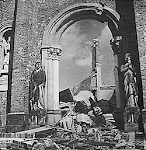







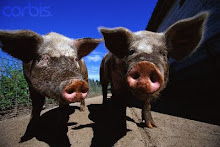



























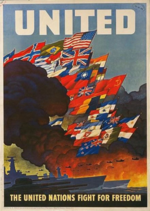


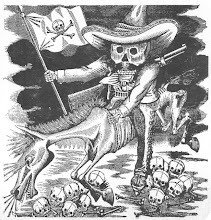












4 comments:
Excellent post, Ed. I'm going to buy that book now.
Thank you. The article was referred to me by one of the anonymous commenters.
I agree with MZ on the post.
On another light...
... Soon enough, folks will discern the Negative Energy Vampires that seem to breed in our environment.
Anything positive and fruitful will draw attention; red flags dot the landscape, conventional wisdom is discarded as oppression, and confusion is spread among our community.
Talk about classic indoctrination, "Kurgan, please chime in."
Today, Grand Theft Auto(4), is expected to gross 400,000,000 in the first week of sales.
Who's fiddl'n, while what burns?
ML
BTW,
IDM, MJ, Migillicuty; I'd be honored to learn anything enough to drag me out of the bog of idiocy.
Do you tutor?
I may be anonymous, but I do have an identity. I do appreciate your respecting my need for anonymity, Ed. I'm glad you liked the article. It was sent to me by someone who always seems to know what I should read, whether I want to or not.
Post a Comment